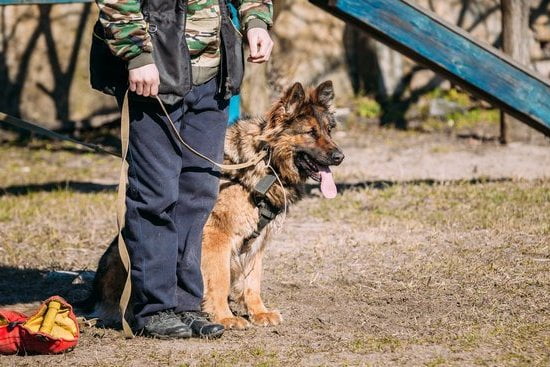Can you train your own service dog in Canada? Service dogs play a crucial role in the lives of individuals with disabilities, providing essential support and assistance in their daily activities.
In Canada, the presence of service dogs is protected by legal rights and regulations to ensure access and accommodation for those who rely on these specially trained animals. This article aims to explore the process of training a service dog, including the possibility and legality of training your own service dog in Canada.
Service dogs come in various types, such as guide dogs, hearing dogs, mobility assistance dogs, and psychiatric service dogs. Each type serves specific purposes tailored to the needs of their handlers, showcasing the importance of proper training for service dogs. Understanding the training process and requirements is vital for anyone considering obtaining or training a service dog in Canada.
The question of whether individuals can train their own service dog in Canada is one that deserves careful consideration. Exploring the requirements and regulations surrounding owner-trained service dogs is crucial for those interested in taking on this responsibility. This article will delve into the pros and cons of training your own service dog versus obtaining a trained service dog from an organization, providing valuable insights for potential handlers.
The Process of Training a Service Dog
Service dogs play a crucial role in the lives of individuals with disabilities, providing them with assistance, support, and independence. These specially trained dogs can perform a variety of tasks such as guiding individuals with visual impairments, alerting those who are deaf or hard of hearing to important sounds, providing mobility assistance, and offering emotional support for those with psychiatric conditions.
The process of training a service dog is essential in ensuring that they can effectively carry out their duties and meet the specific needs of their handlers.
Types of Service Dogs
There are various types of service dogs, each trained to fulfill unique functions based on the needs of their handlers. Guide dogs assist individuals with vision impairment by navigating obstacles and providing direction, while hearing dogs alert their handlers to important sounds in the environment.
Mobility assistance dogs help with tasks such as retrieving items, opening doors, and providing stability for individuals with physical disabilities. Additionally, psychiatric service dogs offer support to those struggling with mental health conditions by providing comfort during anxiety attacks or reminding their owners to take medication.
Importance of Proper Training
Proper training is crucial for service dogs to ensure that they can perform their designated tasks reliably and safely. Training also helps service dogs develop good behavior and manners when interacting with the public and other animals. Effective training programs focus on teaching the necessary skills and obedience commands while also socializing the dog to various environments, noises, and distractions they may encounter while on duty.
Overview of Training Process in Canada
In Canada, service dog training typically involves several stages such as basic obedience training, task-specific training tailored to the handler’s needs, public access training to acclimate the dog to crowded places and distractions, and behavior evaluations to ensure the dog meets established standards for temperament and conduct. There are certified trainers and organizations across Canada that specialize in training service dogs according to industry standards and best practices.
Can You Train Your Own Service Dog in Canada?
Exploring the Legality and Feasibility
One of the most common questions that arise regarding service dogs is whether it is possible to train your own service dog in Canada. The answer to this question is yes, it is indeed possible. However, there are several considerations and regulations that individuals need to be aware of before embarking on the journey of training their own service dog.
In Canada, there are specific requirements and standards that owner-trained service dogs must meet in order to be legally recognized as such. These requirements include the dog’s ability to perform specific tasks related to a handler’s disability, good behavior in public settings, and overall suitability as a service animal. It is important for individuals to thoroughly research and understand these guidelines before deciding to train their own service dog.
The Pros and Cons of Owner-Training
When considering training your own service dog versus obtaining one from an organization, it is important to weigh the pros and cons of each option. Owner-training allows for a deeper bond and understanding between the handler and the dog, as well as the flexibility to tailor training to the specific needs of the handler. On the other hand, obtaining a trained service dog from an organization can provide more assurance in terms of the dog’s abilities and behavior.
Additionally, owner-training requires a significant time commitment, dedication, and resources. It also comes with no guarantee of success, as not all dogs may possess suitable traits or capabilities for service work. It is crucial for individuals to carefully consider their own circumstances and preferences when deciding whether owner-training is a feasible option for them.
Training Requirements for Owner-Trained Service Dogs
When considering training your own service dog in Canada, it is essential to understand the specific skills and behaviors that a service dog must exhibit. According to the Canadian Service Dog Foundation, owner-trained service dogs are expected to be well-behaved, obedient, and capable of performing tasks that mitigate their handler’s disability. This includes skills such as alerting to important sounds, guiding their handler safely through public spaces, and providing physical support or assistance as needed.
In addition to these skills, owner-trained service dogs must also undergo a comprehensive certification process. While there are no specific national standards for certification in Canada, many organizations recommend following the standards set by Assistance Dogs International (ADI) or other reputable training programs. This typically involves demonstrating the dog’s proficiency in obedience, public access manners, and task-specific abilities through a series of tests and evaluations.
It is important to note that ongoing training and maintenance are crucial for owner-trained service dogs. Training should be a continuous process throughout the dog’s life in order to ensure that they remain well-behaved, responsive to their handler’s needs, and capable of performing their designated tasks effectively.
| Training Requirements | Owner-Trained Service Dogs |
|---|---|
| Skills and Behaviors | Well-behaved, obedient, capable of mitigating handler’s disability |
| Certification Process | Demonstration of proficiency in obedience, public access manners, and task-specific abilities |
| Ongoing Training | Continuous process throughout the dog’s life |
Support and Resources for Training Your Own Service Dog
When it comes to training your own service dog in Canada, there are numerous resources and support networks available to assist individuals in this process. Whether you are looking for guidance on the training process or seeking out professional advice from experienced trainers, there are options to help you successfully train your own service dog. Here are some key resources and avenues for support:
- Service dog training programs: There are various organizations in Canada that offer comprehensive service dog training programs specifically designed for individuals who want to train their own service dogs. These programs often provide structured curriculums, hands-on training sessions, and access to experienced trainers who can offer guidance and support throughout the process.
- Workshops and courses: Many local communities and organizations host workshops and courses focused on service dog training. These events cover a range of topics, including obedience training, behavioral management, public access rights, and more. Attending these workshops can provide valuable insight and practical knowledge for individuals embarking on the journey of training their own service dog.
- Professional dog trainers: Working with a professional dog trainer who has experience in service dog training can be invaluable. These experts can offer personalized guidance, develop customized training plans, address specific challenges or behaviors, and ensure that your service dog meets the required standards for certification.
Obtaining the necessary support and resources is crucial when considering owner-trained service dogs in Canada. By leveraging these available options, individuals can gain the knowledge, skills, and confidence needed to successfully train their own service dogs while ensuring they meet the legal requirements and standards set forth by Canadian regulations.
Legal Rights and Responsibilities for Service Dog Owners in Canada
In Canada, service dogs play a crucial role in providing assistance and support to individuals with disabilities. Understanding the legal rights and responsibilities as a service dog owner is essential for ensuring the well-being of both the handler and the dog. Here are some important considerations regarding the legal aspects of owning a service dog in Canada:
– **Rights of Service Dog Owners:** Individuals with disabilities who rely on service dogs have the right to be accompanied by their trained canine companions in public spaces, including restaurants, stores, and public transportation. This right is protected under the Canadian Human Rights Act, which prohibits discrimination based on disability. Service dog owners also have the right to housing accommodations that allow for their furry assistants.
– **Responsibilities of Service Dog Owners:** While enjoying certain privileges, service dog owners also have responsibilities to ensure that their dogs behave appropriately in public settings. It is essential for owners to maintain control over their service dogs at all times and ensure that the animals do not create disturbances or pose a threat to others.
– **Legal Considerations for Businesses:** Businesses and establishments in Canada are required to accommodate individuals with disabilities who are accompanied by their service dogs. This means allowing entry to the premises and making necessary arrangements to accommodate both the individual and their dog. Business owners should be aware of these legal obligations and strive to create an environment that is welcoming and accessible to all individuals, including those with service animals.
Understanding these legal rights and responsibilities is crucial for both service dog owners and businesses in Canada. It ensures a harmonious coexistence between individuals with disabilities and members of the public while allowing for equal access and inclusion.
Real-Life Stories and Experiences of Owner-Trained Service Dogs in Canada
The idea of training your own service dog in Canada raises questions about the feasibility and legality of such a venture. With the proper knowledge and understanding of the regulations, it is indeed possible to train your own service dog in Canada. However, there are certain requirements and guidelines that must be adhered to in order to ensure the safety and effectiveness of the service dog.
In Canada, owner-trained service dogs are not regulated by specific organizations or accreditation bodies. This means that individuals have the freedom to train their own service dogs without having to rely on established training programs or institutions.
However, there are important factors to consider, such as adhering to specific training standards and certification processes for owner-trained service dogs. It’s crucial to ensure that these dogs meet the necessary behavioral and skill-based criteria required for their role as service animals.
One key advantage of training your own service dog in Canada is the ability to tailor the training process to suit the individual needs of both the handler and the dog. Owner-trainers have a unique opportunity to build a strong bond with their potential service dogs from an early stage, which can greatly enhance their work together as a team.
On the other hand, obtaining a trained service dog from an organization may offer more immediate access to a fully trained animal but may lack that personalized touch. In some cases, owner-trained service dogs may also receive specialized training for their handler’s unique needs-the benefits of which may be difficult for an outside party without intimate knowledge of these needs recognizes.
| Owner-Trained Service Dogs | Legal Requirements |
|---|---|
| Breed-specific Training | The Accessibility for Ontarians with Disabilities Act requires public agencies and organizations-not private residences-to grant access to individuals with disability. |
| Certification Process | Service dogs are permitted into most public spaces when accompanying people with disabilities due under specific requirements. |
| Specialized Training Options | Allergies or fear are common reasons business owners give for barring entry,-such as psychiatric services or seizure response-even if they comply with current legislation. |
Conclusion and Next Steps for Training Your Own Service Dog
In conclusion, the decision to train your own service dog in Canada is a significant undertaking that requires careful consideration and dedication. Throughout this article, we have explored the importance of service dogs, the training process, legal rights and responsibilities, and the support available for those interested in owner-trained service dogs.
While it is possible to train your own service dog in Canada, it is essential to understand the requirements and regulations involved. Aspiring handlers should carefully weigh the pros and cons of owner-training versus obtaining a trained service dog from an organization.
For individuals considering training their own service dog, it is important to seek out reliable resources and support networks. There are various training programs, workshops, and courses available to assist with the process. Additionally, working with a professional dog trainer who specializes in service dog training can be immensely beneficial. It’s important to remember that ongoing training and maintenance are crucial for a successful service dog partnership.
Ultimately, the journey of owner-training a service dog in Canada can be both challenging and rewarding. It requires commitment, patience, and a deep understanding of the specific needs of individuals with disabilities.
By providing additional resources and information, we hope to encourage and empower those who are considering venturing into owner-trained service dog territory. Whether you choose to train your own service dog or obtain one from an organization, the bond between a handler and their service dog is truly special and life-changing.
Frequently Asked Questions
How Can I Make My Dog a Service Dog Canada?
In Canada, to make your dog a service dog, it is important to start by determining if your dog has the right temperament and behavior to be a service dog. Then, you can consider training your dog with the help of a professional service dog trainer who can guide you through the necessary tasks and skills required for a service dog.
Additionally, you will need to familiarize yourself with the laws and regulations pertaining to service dogs in Canada and ensure that your dog meets all the necessary requirements.
Can I Train My Dog to Be a Service Dog by Myself?
Training your dog to be a service dog by yourself is possible but can be quite challenging and time-consuming. It requires patience, consistency, and dedication from the owner as well as proper knowledge of what is required of a service dog.
It is highly recommended to seek guidance from professional trainers who specialize in service dog training to ensure that your dog receives appropriate and effective training.
Do Service Dogs Need Papers in Canada?
In Canada, there are no official documentation or papers required for a service dog. However, it is highly recommended for owners of service dogs to have some form of identification such as an ID card or vest for their service dogs.
This can help communicate to others that the animal is working and should not be disturbed while also making it easier to access public places with the service dog. Overall, while not mandatory by law, having some form of identification for a service dog can make daily life easier for both the owner and the public.

Welcome to the blog! I am a professional dog trainer and have been working with dogs for many years. In this blog, I will be discussing various topics related to dog training, including tips, tricks, and advice. I hope you find this information helpful and informative. Thanks for reading!





